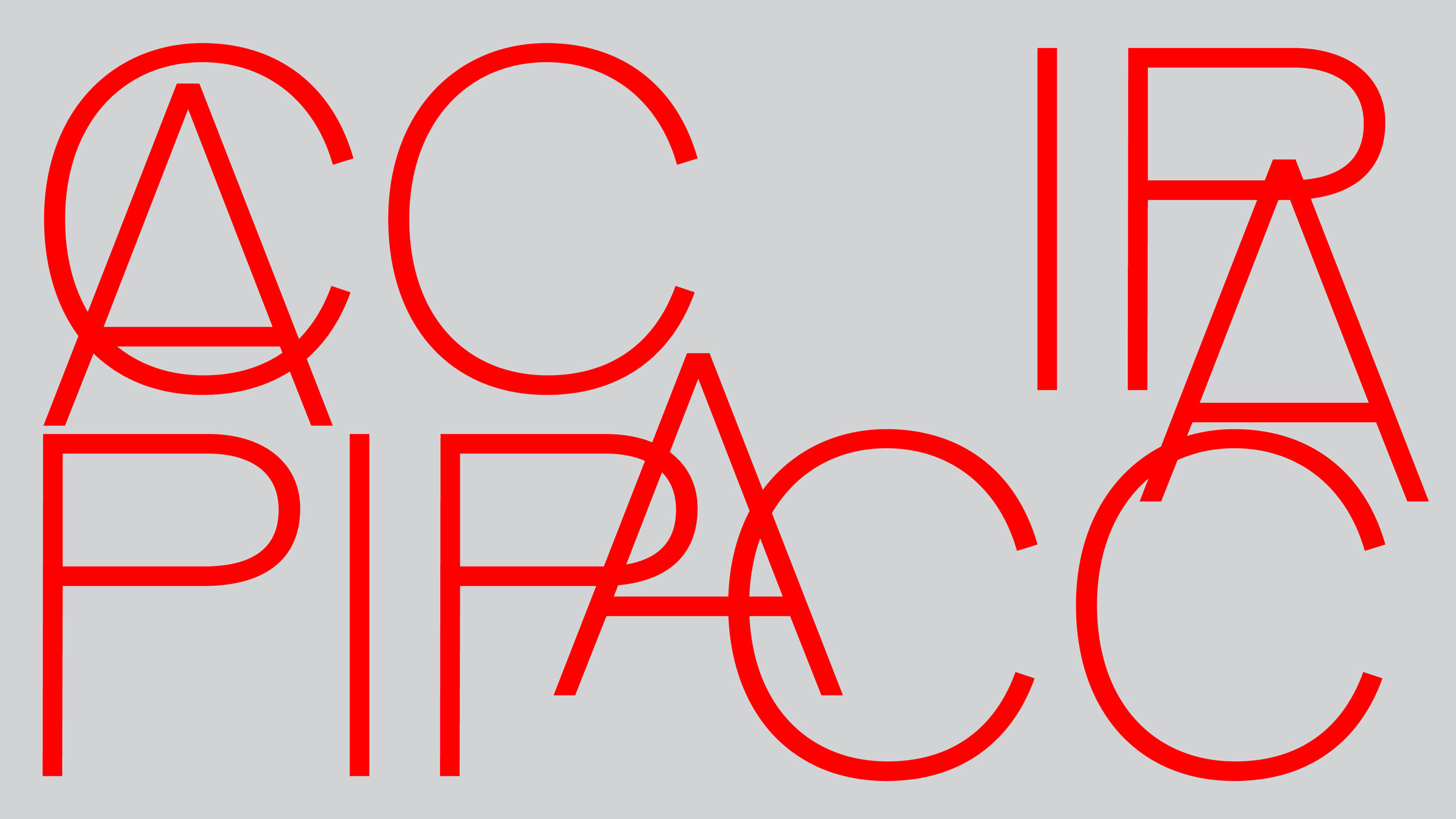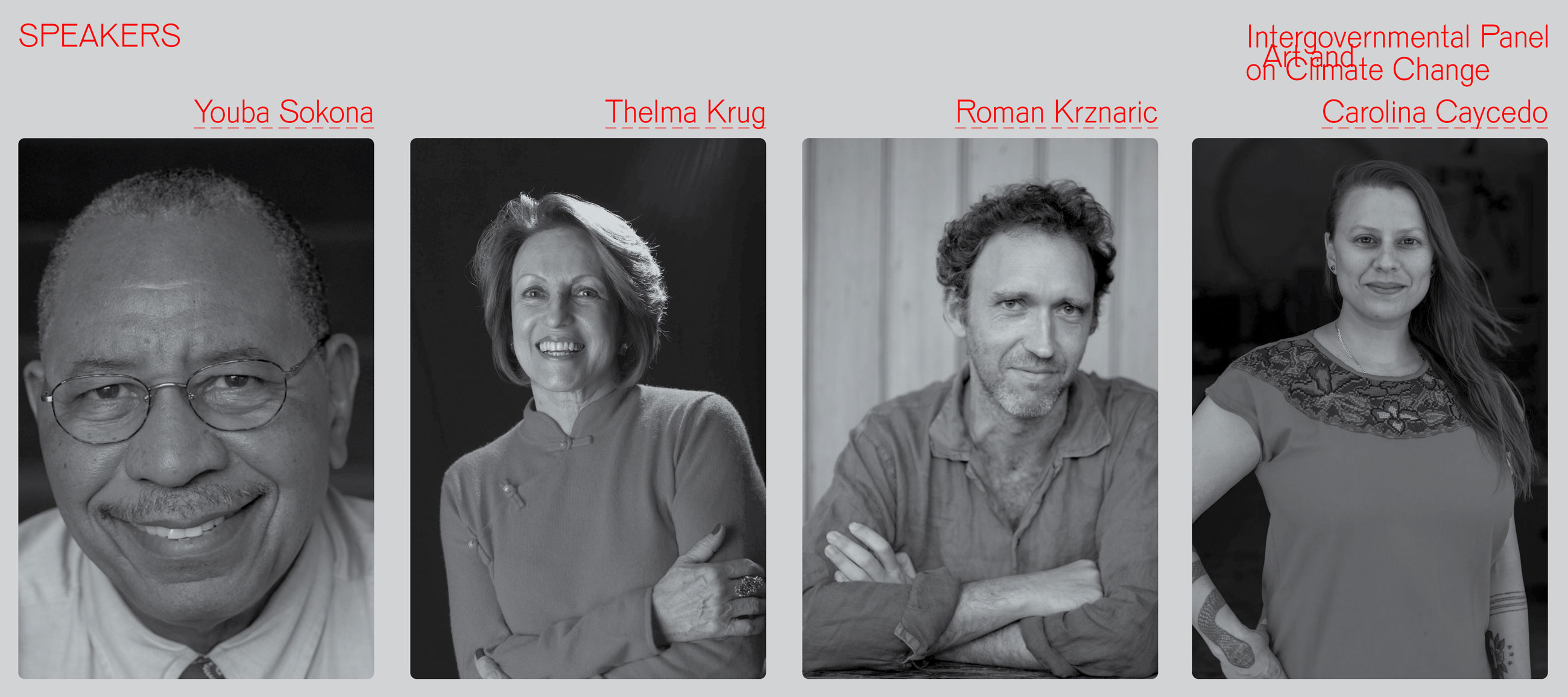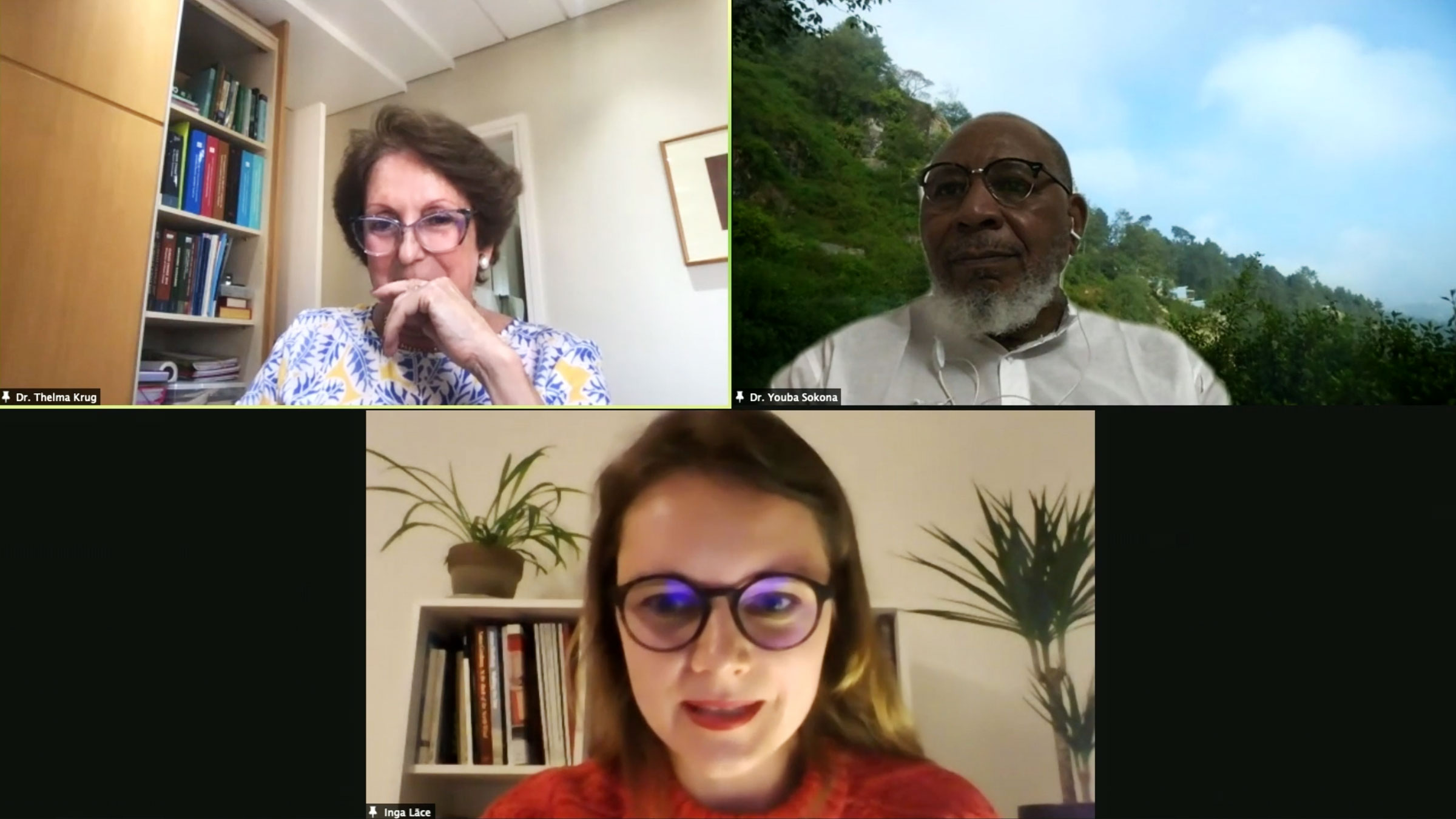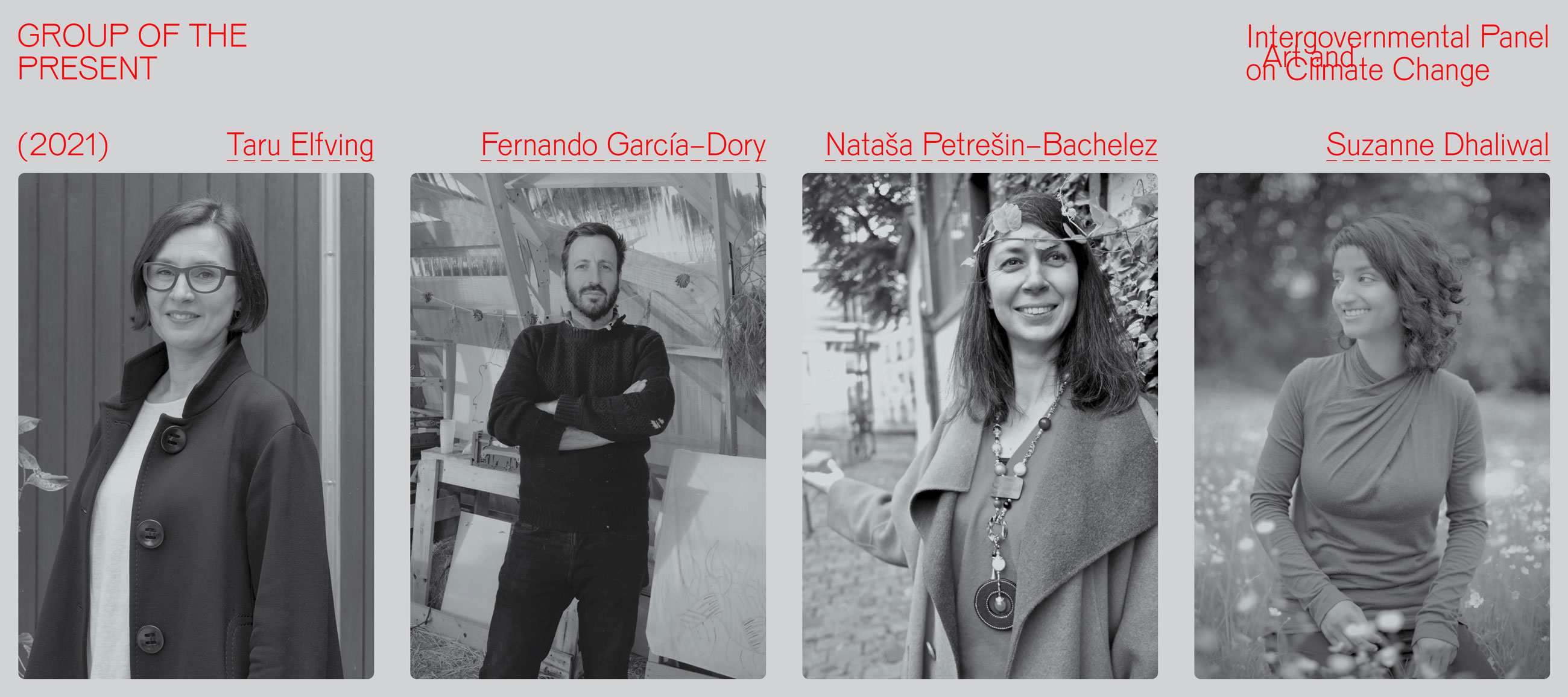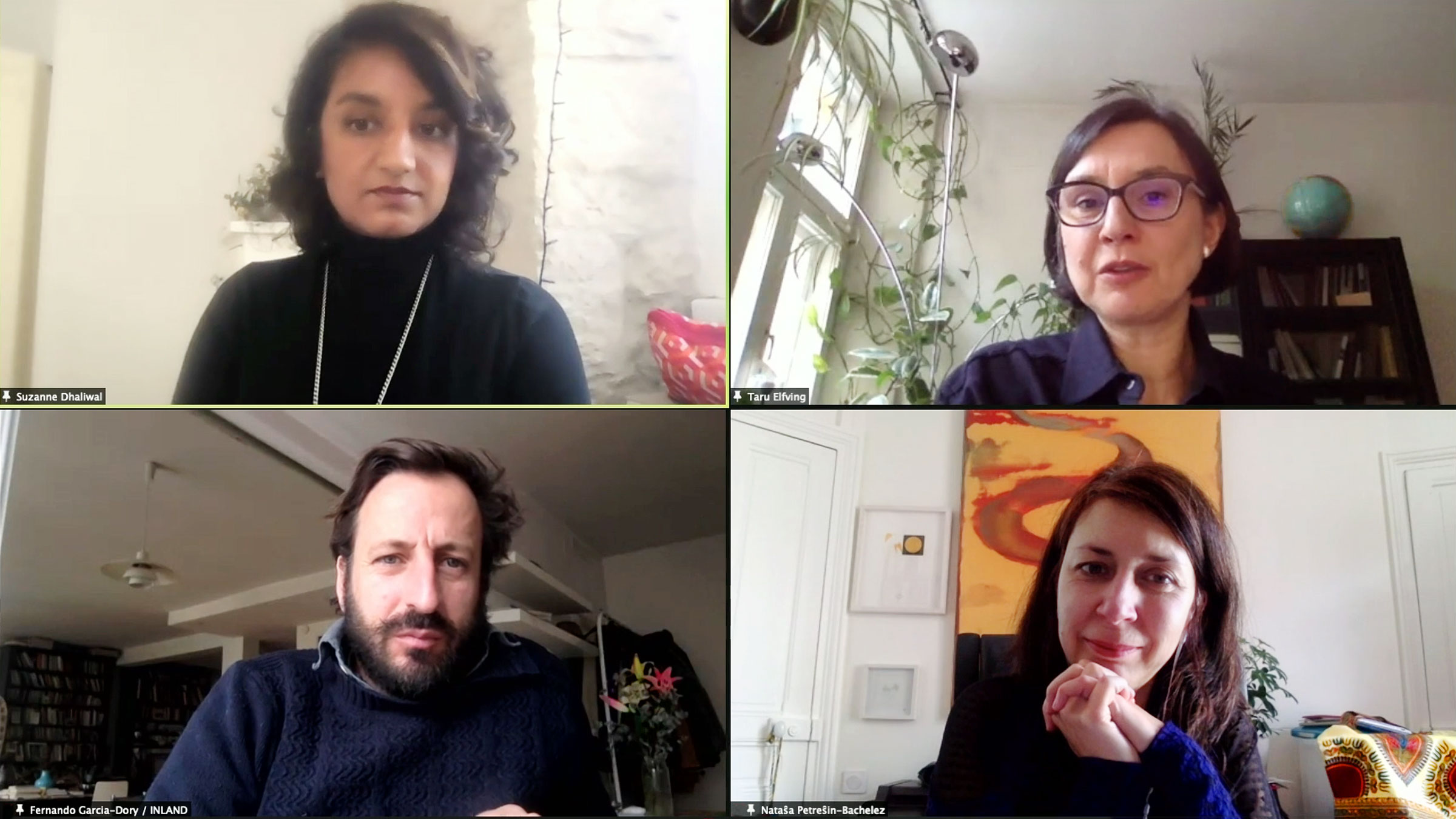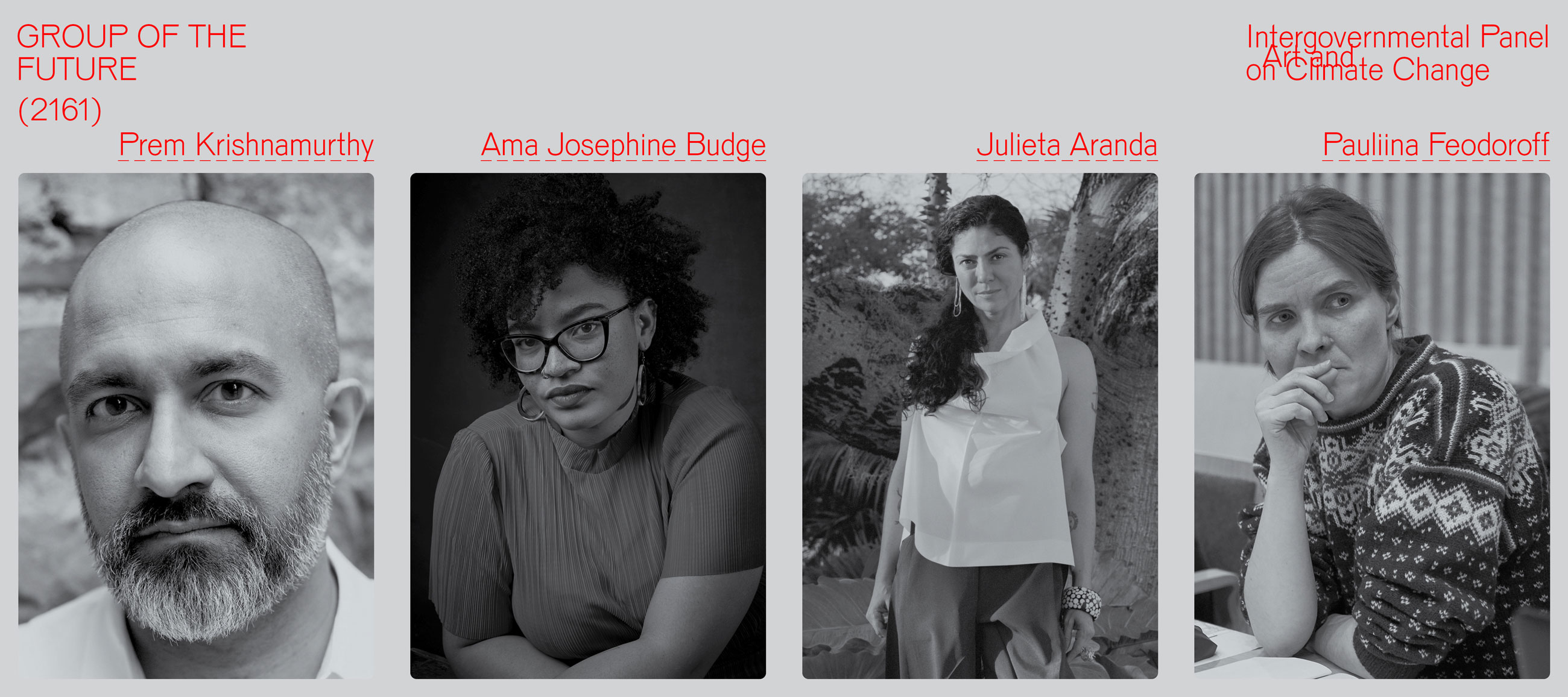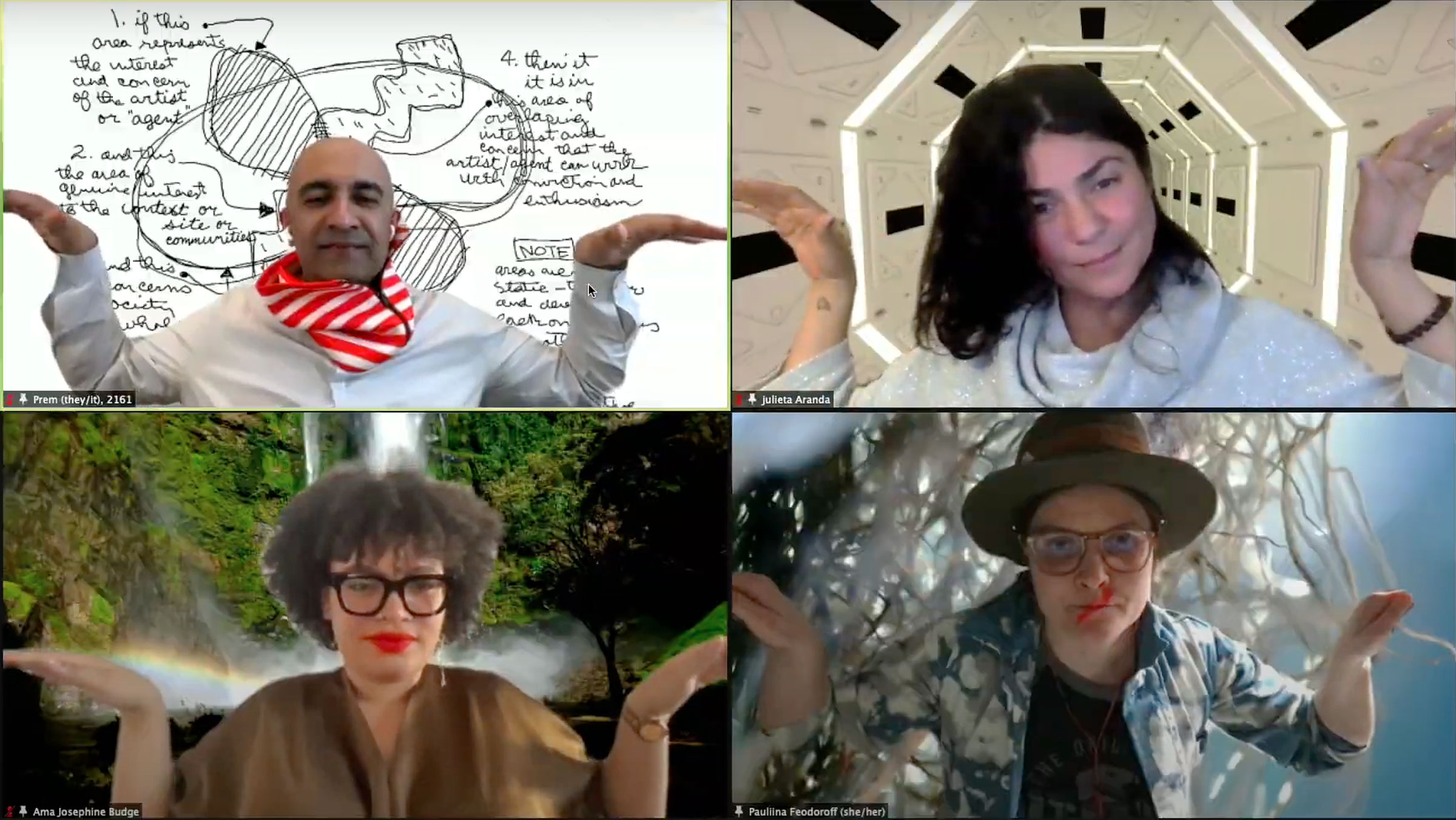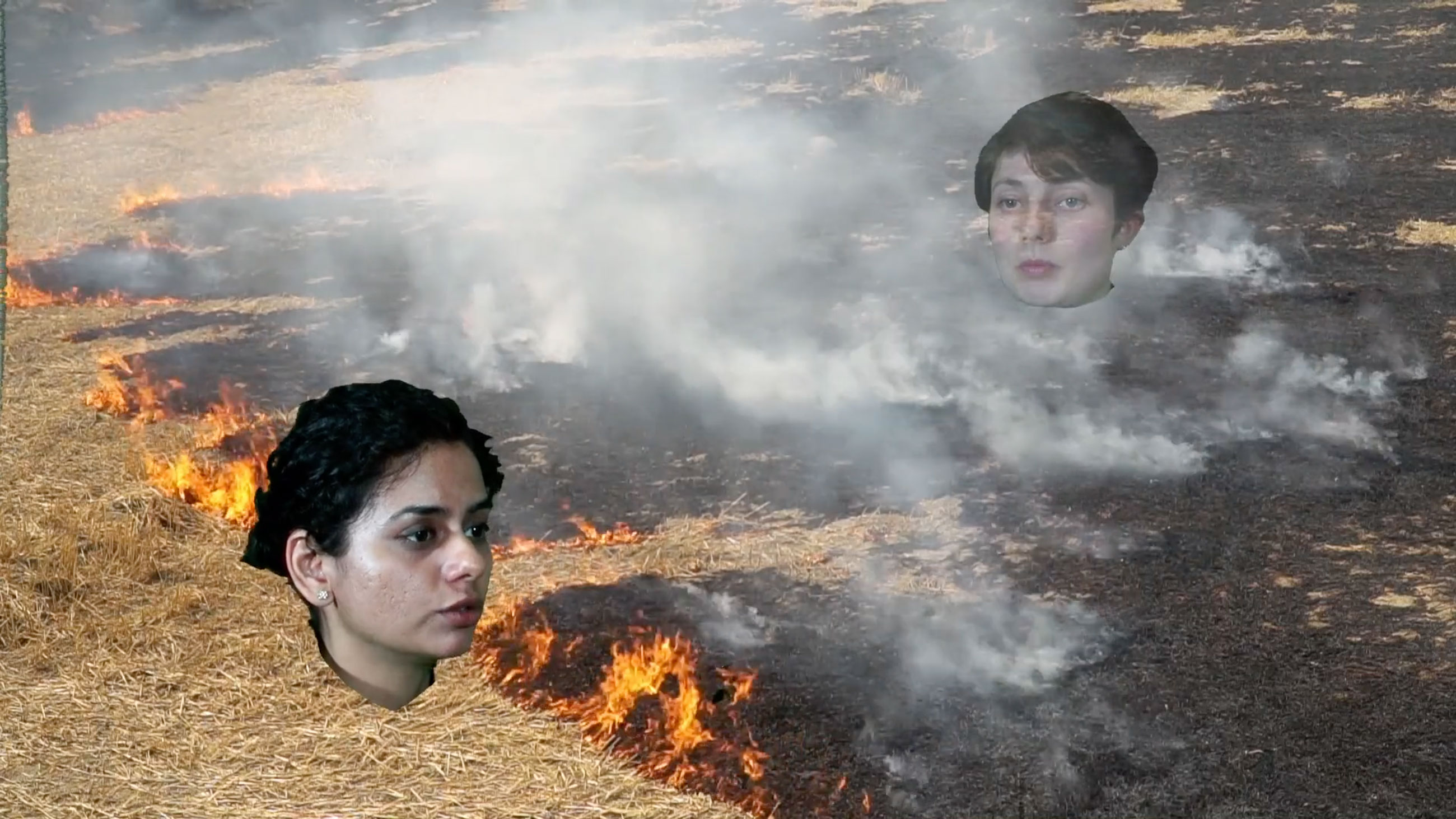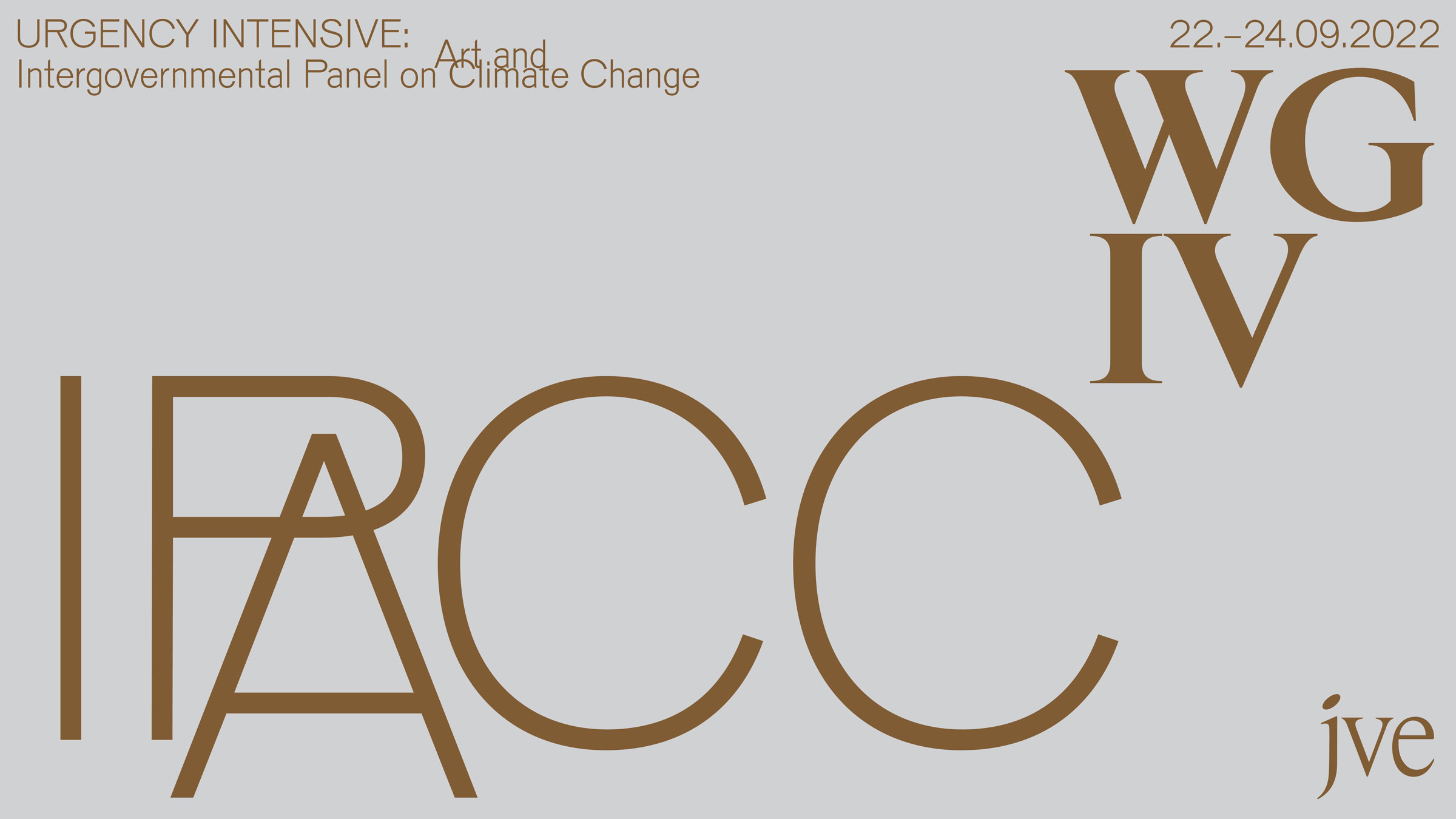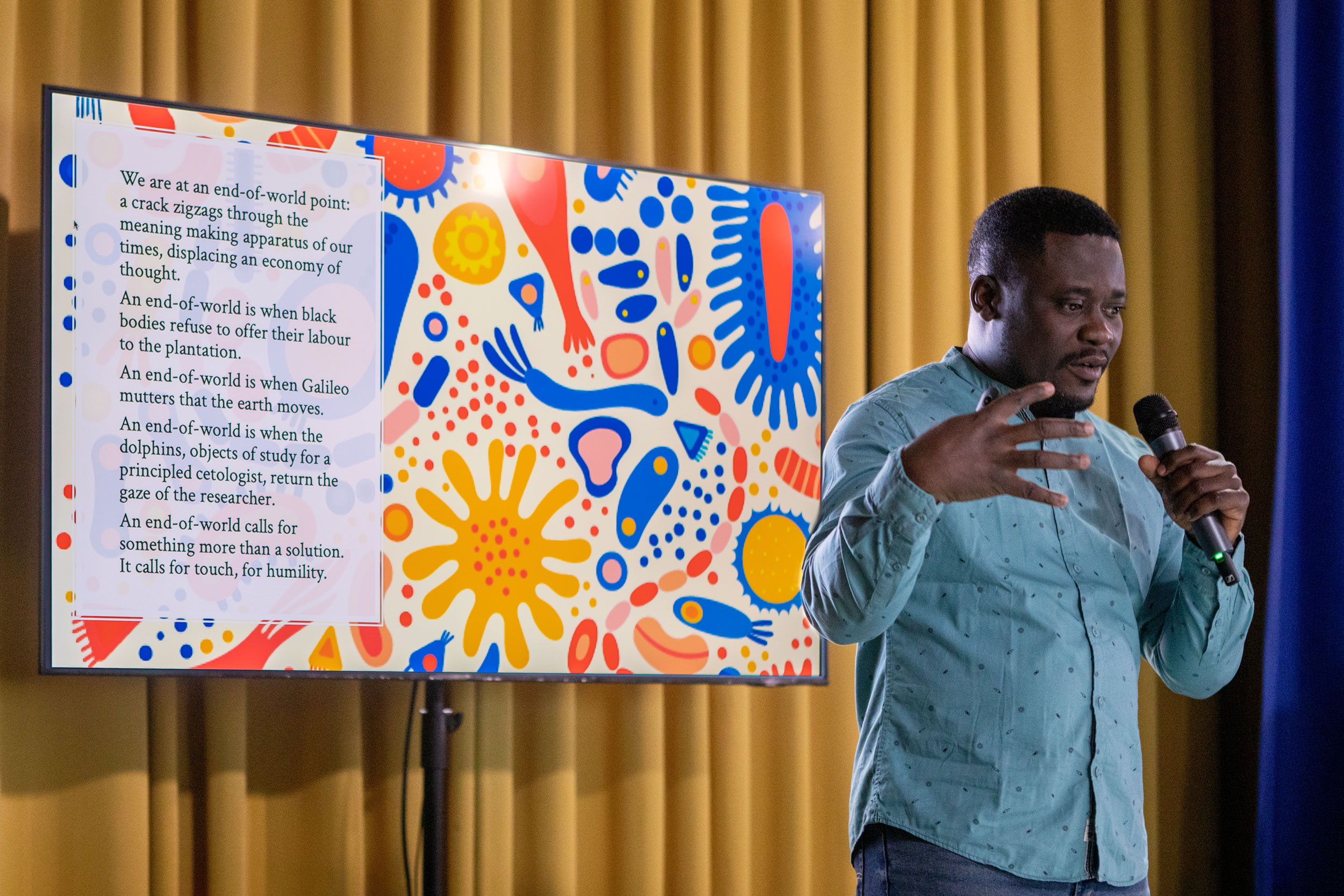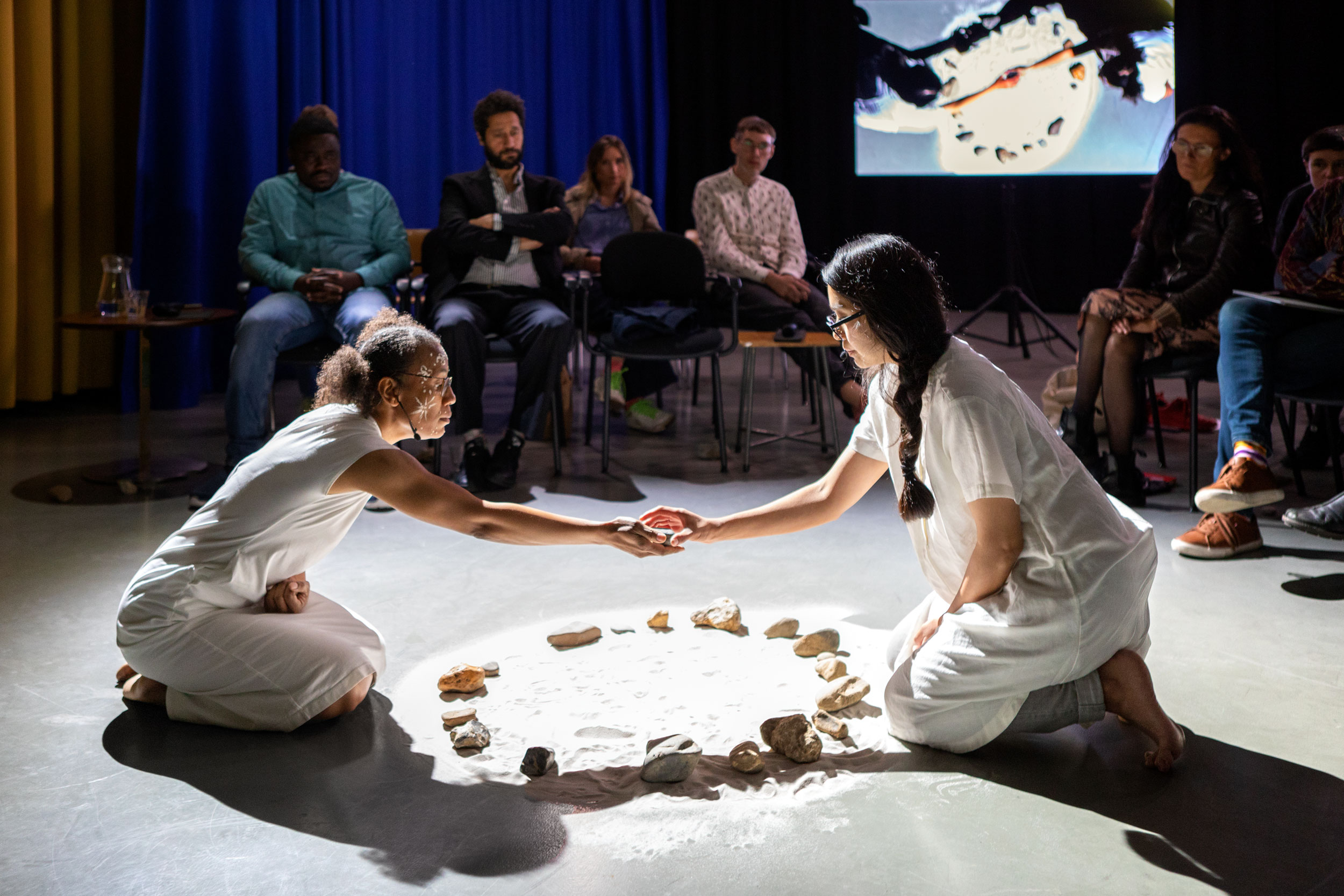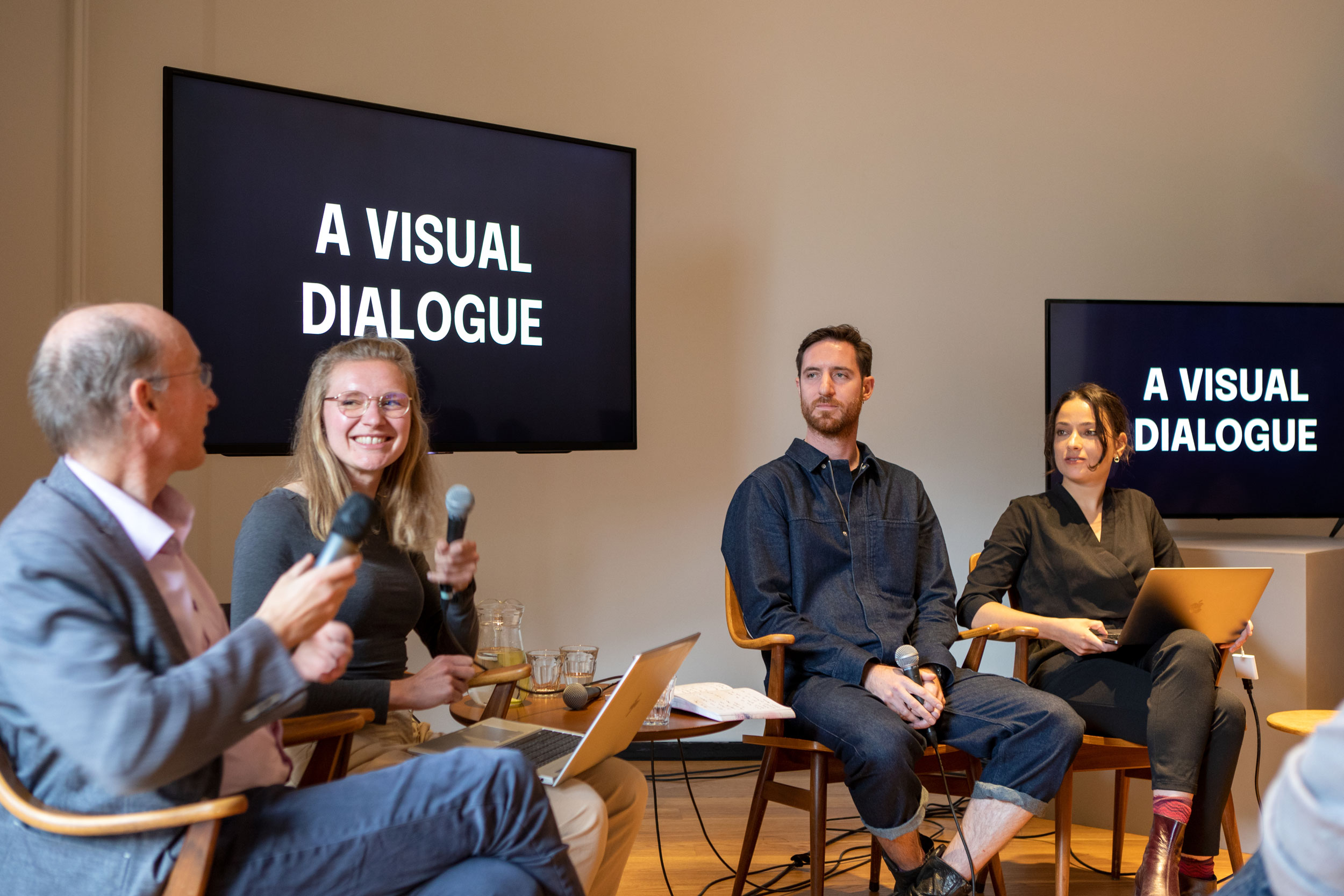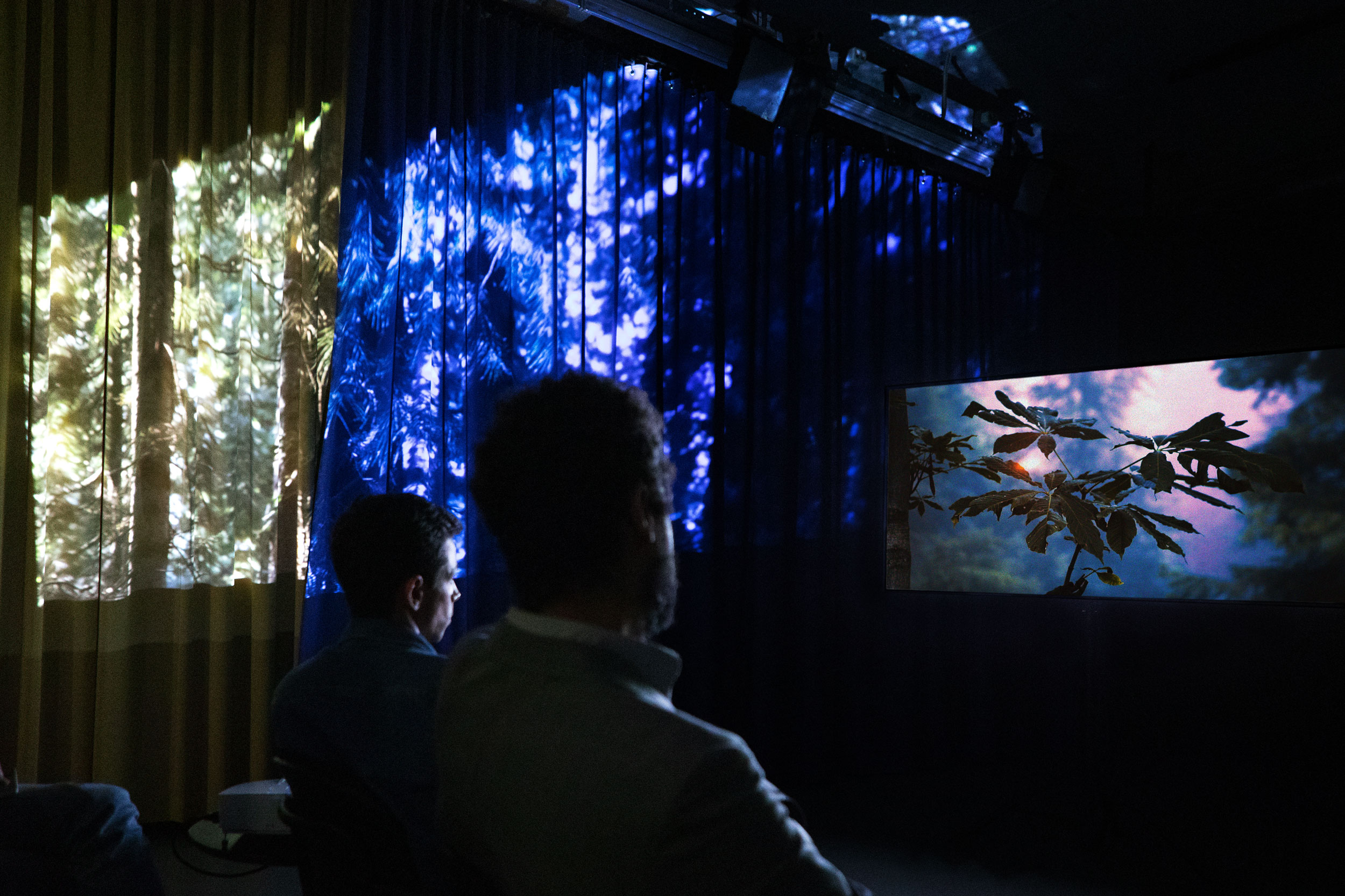Intergovernmental Panel on Art and Climate Change
The Intergovernmental Panel on Art and Climate Change (IPACC) is a fictional institution which refers to the Intergovernmental Panel on Climate Change (IPCC), the United Nations’ body assessing the science related to climate. Acknowledging that both the impacts of and solutions to climate change are deeply mediated by culture, the IPACC explored a stronger integration of the arts, social sciences and humanities within the interface between science and global policymaking. The project spanned two discursive events in consecutive years, happening in parallel to the unfolding IPCC’s 6th Assessment Cycle, a comprehensive review of the latest climate science instrumental to inform climate protocols.
In the first three-day event in 2021, the prospects and challenges of the IPACC were discussed in a speculative role-play between professionals enacting the Present and the Future, seven generations ahead. The group of the Present departed from the fictional scenario that the IPCC wished to include arts and culture in their workings and thought prospectively on how such a collaboration could come about. The Future, 140 years ahead, gave a retrospective evaluation on the IPACC’s importance, shortcomings, and impact on future societies. After separate round-tables, both groups joined forces in speculating how arts and culture could gain further traction in the discussion and action on the climate crisis.
The second event gave continuity to these reflections and departed from the IPCC’s structure of 3 Working Groups (WG), imagining a 4th group within the IPACC. The IPACC WG IV occurred after the publishing of the reports by the IPCC’s three Working Groups, which constituted the 6th Assessment Report (AR6). The event opened spaces for discussion to react, reflect and add to this on-going process which culminates with the publishing of the AR6 Synthesis Report, completing the IPCC’s 6th assessment cycle and bringing key information to global policymakers.
Intergovernmental Panel on Art and Climate Change (IPACC)
co-curated with Inga Lāce
25 - 27.02.2021
Jan Van Eyck Academie, Maastricht, Netherlands
With contributions by:
Ama Josephine Budge, Carolina Caycedo, Fernando García-Dory, Hicham Khalidi, Julieta Aranda, Nataša Petrešin-Bachelez, Pauliina Feodoroff, Prem Krishnamurthy, Roman Krznaric, Suzanne Dhaliwal, Taru Elfving, and IPCC Vice-Chairs Dr. Thelma Krug and Dr. Youba Sokona.
Jan van Eyck participants (2020-21): Aliki van der Kruijs, Arvid&Marie, Asli Burger, Charlotte Lagro, David Habets, Manjot Kaur, Rudy Guedj and The Soft Protest Digest.
Watch the full event here, or a 1-hour synthesis here.
Download the project portfolio here.
/
Dreaming and Futuring
10.03.2022
Jan Van Eyck Academie, Maastricht, Netherlands
With contributions by:
Dr. Sidarta Ribeiro, Dr. Jesse Hoffman and Daniel Godínez Nivón
Watch the event here.
/
IPACC WG IV
22 - 24.09.2022
Jan Van Eyck Academie, Maastricht, Netherlands
With contributions by:
Bayo Akomolafe, Bruno Alves de Almeida, Detlef van Vuuren, Hicham Khalidi, Himali Singh Soin & David Soin Tappeser, Jeff Diamanti, Lisette van Beek, Pauliina Feodoroff, Selçuk Balamir, T. J. Demos, Taru Elfving, Teresa Borasino and IPCC Vice-Chairs Dr. Thelma Krug and Dr. Youba Sokona.
Jan van Eyck participants (2021-23): Amauta García & David Camargo, Daniel Frota de Abreu, Daniel Godínez Nivón, Ekaterina Volkova, Hira Nabi, Julien Thomas, Sophie J Williamson and Yasmine Attoumane.
Watch the full event here.
Download the project portfolio here.
